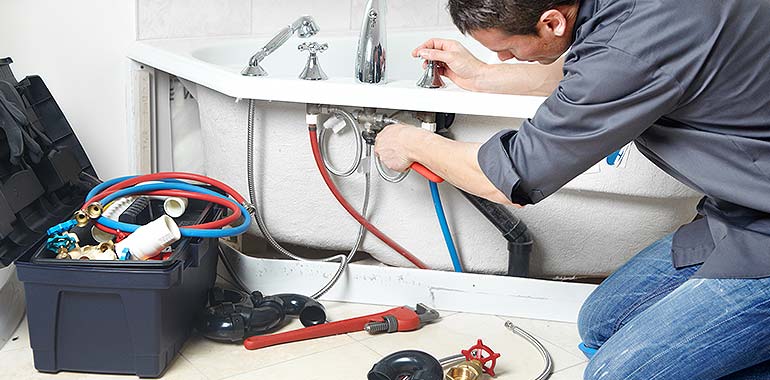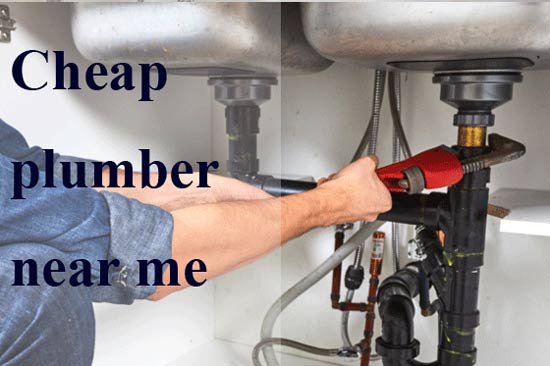The Advantages and disadvantages of Tankless Water Heaters and Heat Pumps
When it comes to heating your home's water, you've obtained two high-tech options that guarantee effectiveness and benefit. Tankless water heaters deliver warm water as needed, but can they truly outshine the energy-sipping expertise of heatpump? The answers may stun you. Whether you're wanting to reduce your energy costs or decrease your carbon footprint, the option in between these two systems involves more than satisfies the eye. To discover the complete tale, you'll need to explore the details - from installment prices to long-term upkeep needs. The choice you make could have a considerable effect on your home's comfort and your budget.
Key Takeaways
- Tankless hot water heater have higher power performance rankings (80-98%) contrasted to standard tank-style heating units (50-60%), but may require extra costly installation.

- Heatpump can accomplish performance ratings up to 300% by transferring heat, yet have higher ahead of time expenses ($4,000 to $7,500) than tankless devices ($1,000 to $3,000).
- Tankless hot water heater need normal maintenance to prevent mineral buildup, while heat pumps need seasonal filter adjustments and refrigerant top-ups for optimal efficiency.
- Tankless systems provide higher flow prices and stable water temperatures, ideal for bigger houses, while heatpump are much better for smaller areas with moderate heating/cooling demands.
- Both choices can decrease carbon footprint, with tankless heating units minimizing lost power and heat pumps using renewable energy, but the higher ahead of time price of heat pumps may be a factor to consider.
Power Efficiency Contrast
Tankless water heaters are normally a lot more energy-efficient than typical tank-style hot water heater, with an efficiency ranking of around 80-98% contrasted to 50-60% for storage tank water heaters. This implies you'll delight in substantial energy savings with a tankless system. Because they just warm water as needed, there's no need to continually keep a full tank of warm water, which can squander a great deal of energy. Tankless designs are additionally more operationally efficient, as they prevent standby warmth losses related to tank-style heating units.
On the various other hand, heatpump can also be exceptionally energy-efficient, with efficiency rankings of as much as 300%. https://poplarplumber.co.uk This is due to the fact that they do not generate warm straight however rather transfer it from the bordering air. While the upfront price of a heat pump may be greater, the long-lasting energy savings can make them a worthwhile financial investment, particularly in milder climates.
Eventually, one of the most energy-efficient option will certainly depend upon your specific requirements, climate, and budget.
Installment and Expenses
The installation of tankless water heaters can verify more involved than their tank-based equivalents, frequently calling for upgrades to electrical or gas supply lines.
In a similar way, heatpump might necessitate added ductwork or cooling agent lines, enhancing the total project range and connected costs. Nonetheless, the potential lasting power financial savings of these systems can justify the upfront investment for numerous house owners.
When it comes to installment difficulties, tankless designs typically need devoted airing vent and larger gas lines to manage the higher burner capacity. This can mean a lot more intricate and expensive plumbing and electrical work.
Heat pumps, on the other hand, may require extra space for the outside unit and alterations to your home's ductwork.
As for expense factors, tankless water heaters typically cost more in advance than traditional storage tank designs, with the cost commonly ranging from $1,000 to $3,000 for the system and installation.
Heatpump likewise lug a greater initial rate compared to conventional HVAC systems, usually costing in between $4,000 to $7,500 installed. Nonetheless, the lasting power financial savings can help balance out these greater ahead of time costs.
Upkeep and Life expectancy
Maintaining both tankless hot water heater and heatpump requires regular interest, though the certain upkeep requirements may vary. While tankless versions normally require regular flushing to prevent mineral accumulation, heat pumps require seasonal filter modifications and periodic cooling agent top-ups. The frequency of these regular tasks can impact the general life expectancy of the units.
Tankless water heaters generally have a longer anticipated life-span of 15-20 years, offered you stay on top of the suggested upkeep. Heatpump, on the various other hand, may require replacement every 10-15 years, depending upon use and ecological variables. Appropriate care, such as yearly tune-ups and timely repair work, can prolong the helpful life of both systems.
Inevitably, comprehending the maintenance needs and substitute frequency for your details water home heating or a/c service is vital for making best use of performance and staying clear of unexpected malfunctions down the line. Staying aggressive with upkeep is crucial to getting one of the most out of your financial investment.
Ecological Factors to consider
When choosing between tankless water heaters and heat pumps, you'll intend to contemplate their environmental impact. Both systems have distinct ramifications for power usage and greenhouse gas exhausts that can affect their eco-friendliness. Very carefully considering these variables can assist you choose the water heating or heating and cooling option that finest straightens with your sustainability goals.
Tankless water heaters are usually more energy-efficient than typical tank models, as they just heat water on demand. This can minimize your carbon impact by decreasing thrown away power. Nevertheless, tankless heating units might rely on natural gas or electrical power, which can still add to greenhouse gas discharges, relying on your regional power mix.
Heatpump, on the various other hand, harness renewable resource from the surrounding environment to heat and cool your home. This can considerably decrease your overall power use and exhausts compared to combustion-based systems. The drawback is that heat pumps may have higher in advance costs.
Ability and Performance
An additional essential factor to consider when choosing between tankless water heaters and heatpump is their respective abilities and efficiency abilities.
Tankless systems typically supply higher flow prices and can fulfill the warm water needs of larger houses, whereas heatpump might be far better suited for smaller sized space with modest home heating and cooling down requirements. Reviewing your details hot water and climate control requirements will certainly aid establish which system can most properly and effectively meet your home's comfort and power needs.
Tankless hot water heater boast excellent circulation prices, enabling multiple appliances and fixtures to run all at once without a substantial drop in water temperature. This temperature stability is essential for maintaining comfortable showers and meeting the hot water needs of your family members.
On the other hand, heatpump stand out at supplying reliable, year-round climate control, however their capacity might be restricted for bigger homes with high heating and cooling needs. Very carefully considering your house's unique needs is vital to picking the right system for best efficiency and power cost savings.
Frequently Asked Inquiries
Do Tankless Hot Water Heater Work in Extreme Cold Climates?
Yes, tankless hot water heater can work in severe cool climates, however their efficiency and performance might be influenced.
In extremely chilly conditions, the inbound water temperature level is reduced, which can reduce the tankless device's capability to warm water swiftly.
To maintain optimum tankless efficiency and cold climate performance, you may need to review a higher-capacity model or one with sophisticated attributes like built-in freeze security.
With the ideal system, you can still enjoy the advantages of immediate warm water, also in icy temperature levels.
Can Heat Pumps Be Used for Both Heating and Cooling?
You'll be pleased to know that heatpump can without a doubt be used for both heating and cooling.
Many thanks to their dual performance, they offer reliable environment control throughout the year.
By utilizing the warm in the air, heatpump can effectively warm your home throughout the cooler months.
And when it's hot outside, they can turn around the process, making them a functional and energy-efficient selection.
How Noisy Are Tankless Water Heaters and Warm Pumps?
You'll discover that tankless water heaters and heatpump can vary in their noise levels.
Tankless designs are generally quieter than traditional tank-style units, thanks to their small dimension and absence of a huge heater.
Heatpump, on the other hand, do produce some functional sound, yet correct audio insulation can help decrease it.
When picking between the two, make sure to think about the sound element and search for designs with efficient sound dampening attributes.
Can Tankless Water Heaters Be Set Up Outdoors?
You'll rejoice to recognize that tankless hot water heater can undoubtedly be installed outdoors. This supplies benefit and adaptability, yet there are maintenance considerations to remember.
Exterior systems need security from the aspects, and you'll wish to ensure correct air flow and drain. Normal maintenance is a must to prevent concerns like mineral accumulation.
With the right configuration and treatment, an outdoor tankless heating system can provide dependable hot water for your home.
Do Warm Pumps Require Additional Devices for Homes Without Ductwork?
If your home does not have ductwork, you'll need additional equipment to mount a heat pump.
Unlike conventional heaters, heatpump call for ductwork to distribute warmed or cooled air throughout your home.
Without it, you'll require to install air trainers or mini-split systems to guarantee efficient energy use.

Though the setup might be much more intricate, heat pumps can still be a wonderful selection, providing excellent energy effectiveness compared to other home heating and cooling alternatives.
Verdict
Eventually, your option between a tankless water heater and a heat pump comes down to your house's certain requirements and budget plan.
Tankless heaters supply on-demand hot water and performance, however cost even more ahead of time.

Heat pumps make use of renewable energy, yet job best in smaller rooms.
No matter your pick, appropriate maintenance is vital to ensuring long life.
Evaluate the pros and cons thoroughly to make the best decision for your home.
